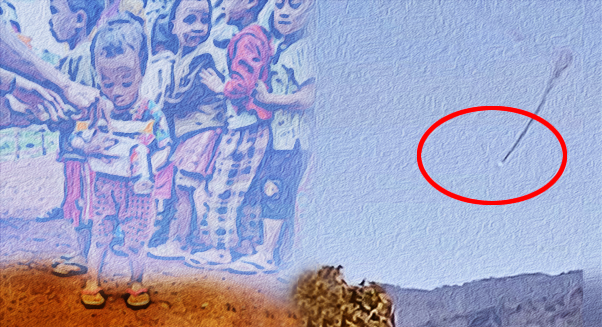**Myanmar Spring Chronicle – January 03, 2024 by MoeMaKa Media:
Humanitarian Crisis Deepens Amid Civil Strife**
In a stark revelation, the United Nations Office for the Coordination of Humanitarian Affairs (UN OCHA) disclosed that a staggering 6 million children in Myanmar are grappling with malnutrition, marking a distressing consequence of the ongoing turmoil following the military coup in February 2021. This grim statistic, encapsulating over 10 percent of the country’s population, paints a dire picture of the multifaceted challenges faced by Myanmar’s youth, encompassing malnutrition, limited access to education and healthcare, displacement, and food insecurity.
The impact of this crisis is particularly acute in regions marred by armed conflicts, including Northern Shan State, Kachin State, Karen State, Sagaing Region, northern Magway Region, Chin State, and Tanintharyi Region. The generational repercussions of such widespread malnutrition, coupled with the psychological toll of conflict-induced trauma, could cast a long shadow over Myanmar’s developmental trajectory.
The armed conflicts, persisting in several regions, exacerbate the plight of the affected population. While food is available, the destructive force of war hampers agricultural activities, and military council troops compound the issue by confiscating and destroying essential provisions. The consequence is a bleak future for children growing up under conditions of nutritional scarcity and perpetual insecurity.
Critical healthcare services provided by international organizations, especially those catering to children’s vaccination and health education, are severely hampered during times of conflict. The denial of such essential services further compounds the challenges faced by children during their formative years.
Amidst the focus on military victories by armed groups, civil society organizations, volunteer groups, and international aid entities emerge as vital pillars bridging the healthcare and education gap. As efforts persist to dismantle the dictatorial regime, simultaneous endeavors to reconstruct and cultivate a sustainable future must be prioritized.
Drawing lessons from countries mired in prolonged civil strife, where the erosion of the next generation’s well-being led to a recurring cycle of conflict, Myanmar faces a critical juncture. The provision of education and healthcare services to children stands as a linchpin for the nation’s future, and leaders of the Spring Revolution are urged to heed this imperative call for preparation and consideration.
In another development, reports emerged of a helicopter belonging to the military council being shot down by the Kachin Independence Army (KIA) in Kachin State. The helicopter, en route to the Nar Fawt Taung camp, where the military council is stationed, crashed near Namsanyang and Gamdaungyam. According to KIA spokesperson Colonel Naw Bu, the incident occurred around noon on January 3, resulting in the presumed death of all military junta members on board.
As the military council grapples with diminishing control on the ground, their reliance on airstrikes for delivering supplies and reinforcements has intensified. The vulnerability of ethnic armed groups to aerial assaults has prompted the military council to employ this strategy in an attempt to thwart their advances.
The escalation of the military council’s use of air power over the past two years has led to a surge in casualties resulting from airstrikes. While incidents of helicopters or military aircraft being downed are infrequent, they have become more notable, with this recent incident marking a poignant beginning to 2024.
As the flames of civil war engulf Myanmar, the nation finds itself in the throes of an unrelenting humanitarian crisis. The toll on the new generation, tasked with building the nation’s future, is profound, leaving their health, social well-being, intellectual security, and developmental opportunities in jeopardy amid the tumult of war. The leaders of the Spring Revolution are urged to deliberate earnestly on these challenges and make strategic preparations for a more secure and stable future.

